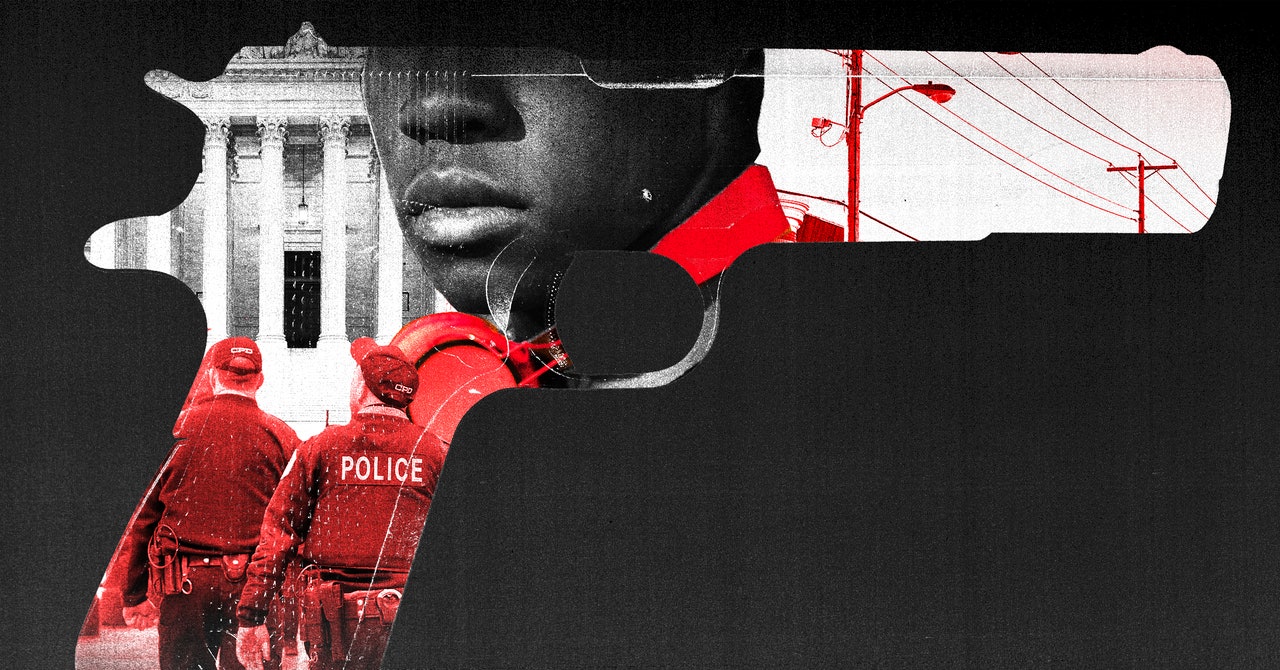
The creator of ShotSpotter is buying the world’s most famous Predictive Policing Tech
ShotSpotter Becomes the Google of Crime Fighting: WIRED’s View of the SoundThinking Absorption of Geolitica
In the US, ShotSpotter has been in more than 150 cities. It relies on internet-connected acoustic sensors, often attached to utility poles, and detects gunfire using machine algorithms. SoundThinking says “acoustic experts” are on staff around the clock to review alerts and “ensure and confirm that the events are indeed gunfire.” The company claims it has an accuracy rate of 97 percent, despite reports that there can be issues with the system caused by fireworks and high- impact sounds.
Brian MacDonald, the CEO of Geolitica, declined an interview and did not answer specific questions about the acquisitions. A third-party spokesperson for SoundThinking, Rob Merritt, tells WIRED that Geolitica is ceasing operations at the end of the year.
Clark said during the call that they had already hired their engineering team. He added that the acquisition of patents and staff would “facilitate our application of AI and machine learning technology to public safety.”
SoundThinking’s absorption of Geolitica marks its latest step in becoming the Google of crime fighting—a one-stop shop for policing tools. The future of policing in the US has the potential to be shaped by two controversial cop-tech technologies that have been bundled together, according to experts. And while SoundThinking has rebranded “predictive policing” as resource management for police departments, a WIRED analysis of one of the company’s apps found that crime-forecasting technology remains one of its key offerings.
“As a moment of tech history, the purchase is significant,” Andrew Ferguson, an American University law professor and author of The Rise of Big Data Policing, tells WIRED. We are in a consolidation moment with big police tech companies getting bigger and this is one step in that process.
Police departments have abandoned PredPol after they found it to be ineffective. The inspector general of the Los Angeles Police Department found that there was no evidence that PredPol had an effect on crime trends. The LAPD dropped PredPol due to budget costs, although they had also collaborated with researchers to develop the technology.
The DOJ needs to consider research that says ShotSpotter has produced tens of thousands of false alert while at the same time being deployed in predominantly Black neighborhoods. One such study, launched by the city of Chicago’s inspector general in 2021, found that the “frequency of ShotSpotter alerts in a given area may be substantively changing policing behavior.” The agency concluded that, despite the city’s investment, ShotSpotter alert rarely produceevidence of a gun related crime, rarely give rise to investigatory stops, and even less frequently cause the recovery of gun crime-related evidence during an investigatory.
The United States Justice Department (DOJ) is being asked to investigate whether a gunshot-detection system widely in use across the US is being selectively deployed to justify the overpolicing of mainly Black neighborhoods, as critics of the technology claim.
In a letter today to Merrick Garland, the US attorney general, attorneys for EPIC call for an investigation into whether cities using ShotSpotter are running afoul of the Civil Rights Act—namely, Title VI, which forbids racial discrimination by anyone who receives federal funds.

